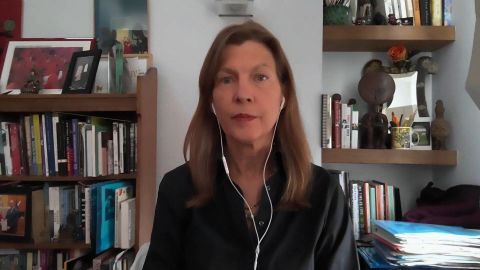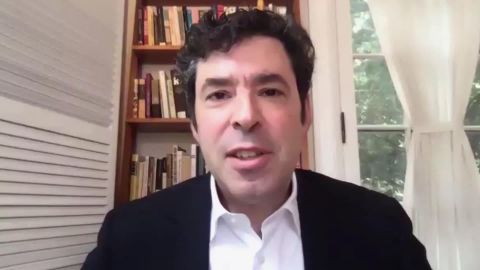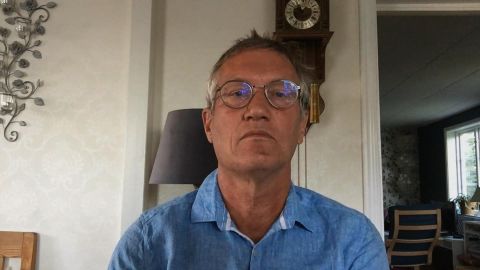Read Transcript EXPAND
CHRISTIANE AMANPOUR: So, what about rumors? You study rumors. And obviously, there’s so much of that happening around a vaccine right now. We know the figures. We’ve heard that according to a recent study, 50 percent in American who have been asked wouldn’t take a vaccine. We’ve heard in Europe that the numbers are pretty alarmingly high about vaccine skepticism. Talk to me about how that builds, what mobilizes that kind of fear and hesitancy?
HEIDI LARSON, DIRECTOR, THE VACCINE CONFIDENCE PROJECT: Well, we see it because we’ve been running polls across Europe and a number of countries over different waves, and those responses are very volatile and they’re very reflective of the state of the epidemic. In the U.K. here in mid-March and into late March, when the numbers of deaths related to COVID started going up, only 5 percent of the population in a representative sample said, we wouldn’t take a COVID vaccine, a new one. Recently, it’s up to 14, 15 percent saying no, as people have seen the figures waning. And there’s places like France, 26 percent said they wouldn’t take a vaccine. And that’s consistent actually with the background. France is one of the highest levels of skepticism in the world, based on our global research, when it comes to vaccines. So, there is also this background factor of populations that have trust issues with government or anxieties about vaccines. So, I think one thing that will be telling is when there is a vaccine, one thing that people will do, will look around and decide, you know, is there enough of a pressing threat for me to take the risk of what I — you know, when there’s a new vaccine?
AMANPOUR: Well, I mean, you’re an expert, and do you think that the people should understand that there’s enough of a pressing threat? I mean, Dr. Fauci in the United States has said that’s his real — his big next nightmare, the idea of this hesitancy and even if there is a vaccine, even if it is, you know, obviously, you know, good to go, that it won’t be taken.
LARSON: Well, I mean, he has a reasonable concern, but the fact is we don’t have a vaccine yet, which gives us time. And one of the big things we have learned and work on, we’ve worked a lot around Ebola vaccine trials, for instance, and the introduction of Ebola vaccines. And we use every minute in the development and trials to build community, consensus, to build community positiveness in situations which are otherwise — and this was in Africa, which are otherwise quite hesitant.
About This Episode EXPAND
Christiane speaks with former diplomat Wendy Sherman about the global democratic order. She also speaks with Sweden’s chief epidemiologist about COVID-19 and Heidi Larson, director of the Vaccine Confidence Project, about how those who are anti-vaccine could impact the coronavirus battle. Hari Sreenivasan speaks with philosophy professor Jason Stanley about what fascist regimes have in common.
LEARN MORE



